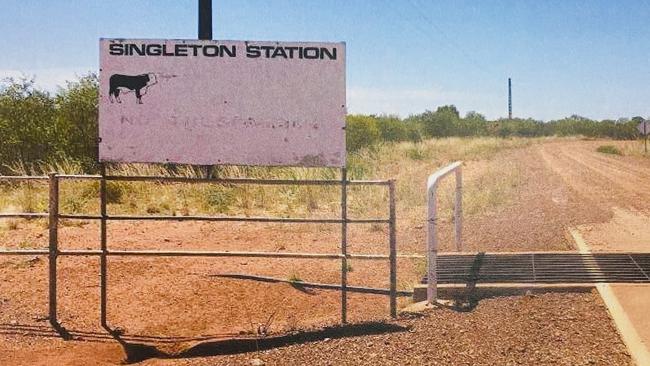Central Land Council demands review of controversial Singleton Station water licence
An NT water licence which means to extract 40,000 megalitres of water a year is being formally challenged by native title holders in Central Australia.

Centralian Advocate
Don't miss out on the headlines from Centralian Advocate. Followed categories will be added to My News.
THE decision to grant a licence which could see 40,000 megalitres of water used a year for three decades for a major food produce project in Central Australia – a plan a water expert described as “fraught with problems”, is being formally challenged by a key Indigenous group.
Fortune Agribusiness’s $150 million plans for a 3,500-hectare fruit and vegetable operation on Singleton Station, about 380 km north of Alice Springs and 150 km south of Tennant Creek, was granted a 30 year Groundwater Extraction Licence in staged approvals by the NT Government earlier this month.
If granted final approval to extract 40,000 megalitres per year it will be the largest single water licence ever issued in the NT.

The Central Land Council (CLC) is applying for a review of the decision and will also seek an independent peer review of the ‘adaptive management’ plan the Northern Territory Government has asked Fortune Agribusiness to complete.
CLC chief executive Lesley Turner said they were calling for the government to “immediately stop the native vegetation clearance and non-pastoral use permits for the company, as well as the environmental impact assessment”.
MORE NEWS
Man on trial for killing wife ‘cried’ while performing CPR on her, court hears
Lia Finocchiaro and Joshua Burgoyne patrol streets of Alice Springs overnight
Alice Springs’ oldest veteran, Sydney Kinsman, 99, to honour the Anzac spirit for the 73rd time
In a meeting in Tennant Creek on Thursday, CLC delegates considered independent hydrogeological advice which confirmed that neither the government’s water license decision nor its approach to managing it comes close to addressing the concerns of the area’s native title holders and affected community residents.

“Our constituents now want us to pursue all avenues for objection because too little is known about how the decision will affect community drinking water for decades to come, including the impact on native plants, animals and sacred sites,” Mr Turner said.
Mr Turner said that without an independent review, the government would be putting the company in charge of managing a precious and finite public resource without scrutiny and transparency.
Independent hydrogeologist Dr Ryan Vogwill said the government’s water resource and impact assessment lacked “a strong understanding of the water resource, biodiversity/cultural values and groundwater dependent ecosystems impact potential”.
He found a major flaw of the allocation planning and impact assessment is that it ignores the most culturally and ecologically important places, such as numerous wetlands, springs and soaks.
“Adaptive management needs a really strong understanding of the water resource, biodiversity/cultural values and groundwater dependent ecosystems impact potential to be successful, particularly in the long term.”
Dr Vogwill said the government lacks the five to 10 years of data that would be required to “understand groundwater-environment-cultural linkages in sufficient detail to develop strong management criteria”.
He said negative environmental impacts may not show up for a decade or more.


